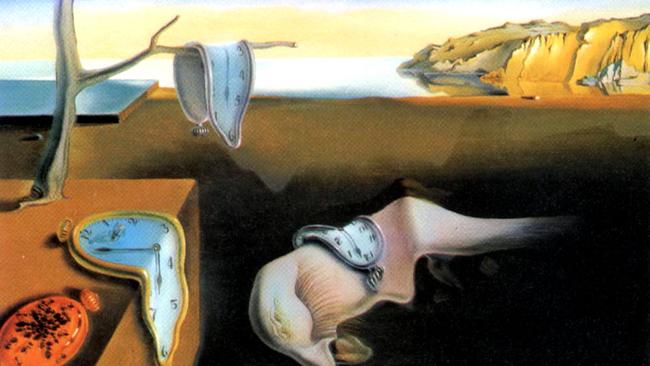Timekeepers: Simon Garfield explores the world’s obsession with time
Simon Garfield sets out to tell some illuminating stories about time, and to ask if we have all gone crazy.

British author Simon Garfield sure likes a challenge. After publishing 17 nonfiction books on topics such as stamp collecting, fonts, maps and the colour mauve, his latest work is devoted to exploring something we’re all innately familiar with, from the youngest age: time.
We see it in the rising and the setting of the sun, in our daily routines and in the narrative arc of each of our lives, which we hope are long and well-lived. Indeed, the topic seems so enormous in scope that one wonders how on earth a writer could wrap his arms around it and return with something worthy, original and valuable.
To his credit, that’s just what Garfield achieves with Timekeepers, a witty, well-structured and consistently fascinating investigation of how humans have perceived, contained and saved time over the past 2½ centuries. In the introduction, he explains the book is about our obsession with the most commonly used noun in the English language — according to the Oxford English Dictionary — and our desire to measure it, control it, immortalise it and make it meaningful. He goes on:
[Timekeepers] considers how, over the last 250 years, time has become such a dominant and insistent force in our lives, and asks why, after tens of thousands of years of looking up at the sky for vague and moody guidance, we now take atomically precise cues from our phones and computers not once or twice a day but continually and compulsively. The book has but two simple intentions: to tell some illuminating stories, and to ask whether we have all gone completely nuts.
It is the most precious non-renewable resource known to humankind. No matter how rich you are, you can never buy more time, for there is no place that sells it. You’re never getting back these moments you’re choosing to spend, right now, reading a newspaper review of a book about something that defines your life. (Thanks for doing so; it’s an honour.)
Garfield opens with a personal anecdote about an incident two years ago where time seemed to slow down. He fell from his bicycle and broke his elbow. “I thought I could feel every granule of time,” he recalls of waiting in a darkened hospital room, bored and awaiting surgery. Later, he decided to waste a lot of time on his iPhone while recovering, by looking up old films on YouTube.
From that hospital bed follows a swift trip into the past, exploring how the French republicans messed up the calendar by attempting to set their own time; how cross-country railways led to the invention of standardised timetables and time zones; how nostalgia became the first disease to be associated with time, its “sufferers” destined for the madhouse; how the metronome was “as revolutionary to Beethoven as the microscope was to 17th-century bacteriologists” as it afforded ultimate steadiness to composers who had previously struggled to notate tempo.
By the author’s admission, Timekeepers is largely an examination of time through a cultural lens. This works well as it allows Garfield to dip in and out of key moments in history without following a strict chronology. He spends a fair bit of time with watchmakers, evidently fascinated by this world, particularly the minute ways in which companies such as Rolex and TAG Heuer attempt to differentiate themselves from their competitors.
Garfield is particularly taken by a clever bit of ad copywriting that suggests you never actually own a Patek Philippe watch, you merely look after it for the next generation. He notes that the selling of watches seems to be keeping print journalism alive: “Open The New York Times and the paper appears to be ticking.” He suggests men tend to admire watches so much because of the relentless endurance with minimum lubrication.
Near the end of the book, when discussing the notion of ‘‘deep time’’ that geologists deal with, he turns the ad copy on its head by suggesting that “deep time is a geologist’s equivalent of the Patek Philippe advert: you never actually live on the Earth, you merely look after it for the next species or ice age”.
From wry social observations to zoomed-out, big-picture summaries of the passage of time and our place in the universe, Timekeepers has it all. Garfield is a charming and well-read tour guide, and the footnotes are always worth a look, if only for a selection of gags he collected during his research, such as the one where Big Ben says to the Leaning Tower of Pisa, “I’ve got the time if you’ve got the inclination.”
Perhaps the biggest question of all is a simple one: why? Why spend several hours reading a book about time, when it seems to be the one thing most of us wish we had more of? Speaking for myself, I’m glad I invested those hours in the company of Garfield’s endless curiosity and good humour. Timekeepers is nothing less than educational and entertaining, and reading its pages is a fine way to spend one’s time.
Timekeepers: How the World Became Obsessed with Time
By Simon Garfield
Canongate, 368pp, $32.99
Andrew McMillen is a Brisbane-based journalist and author.



